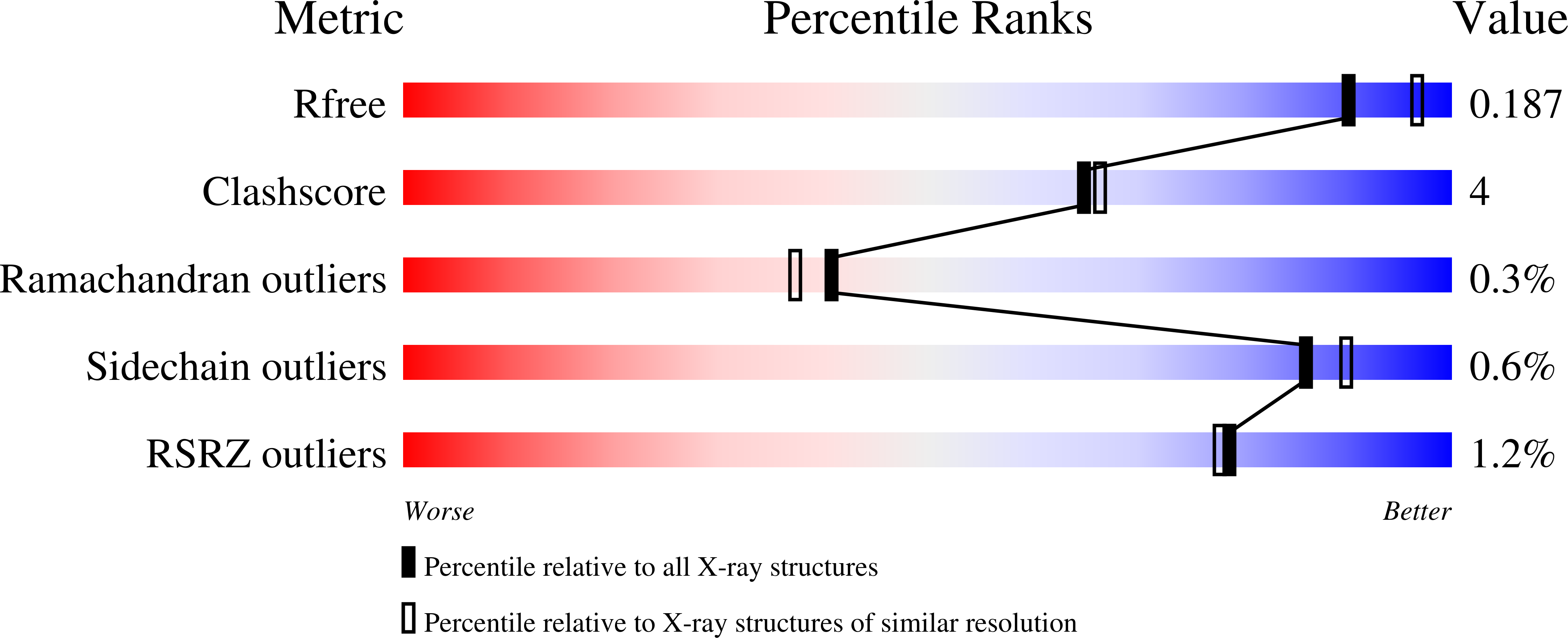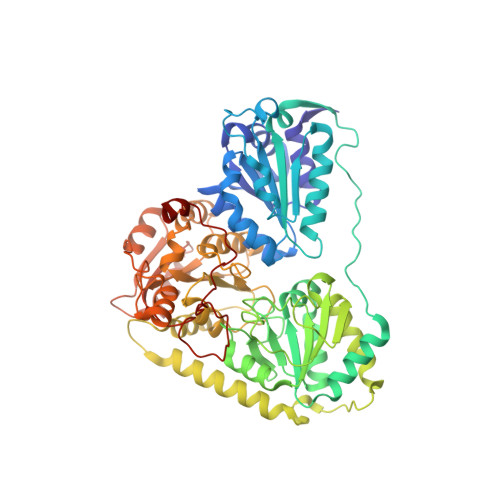Extended Reaction Scope of Thiamine Diphosphate Dependent Cyclohexane-1,2-Dione Hydrolase: From C-C Bond Cleavage to C-C Bond Ligation.
Loschonsky, S., Wacker, T., Waltzer, S., Giovannini, P.P., Mcleish, M.J., Andrade, S.L.A., Muller, M.(2014) Angew Chem Int Ed Engl 53: 14402
- PubMed: 25382418
- DOI: https://doi.org/10.1002/anie.201408287
- Primary Citation of Related Structures:
4D5E, 4D5G - PubMed Abstract:
ThDP-dependent cyclohexane-1,2-dione hydrolase (CDH) catalyzes the CC bond cleavage of cyclohexane-1,2-dione to 6-oxohexanoate, and the asymmetric benzoin condensation between benzaldehyde and pyruvate. One of the two reactivities of CDH was selectively knocked down by mutation experiments. CDH-H28A is much less able to catalyze the CC bond formation, while the ability for CC bond cleavage is still intact. The double variant CDH-H28A/N484A shows the opposite behavior and catalyzes the addition of pyruvate to cyclohexane-1,2-dione, resulting in the formation of a tertiary alcohol. Several acyloins of tertiary alcohols are formed with 54-94 % enantiomeric excess. In addition to pyruvate, methyl pyruvate and butane-2,3-dione are alternative donor substrates for CC bond formation. Thus, the very rare aldehyde-ketone cross-benzoin reaction has been solved by design of an enzyme variant.
Organizational Affiliation:
Institute of Pharmaceutical Sciences, Albert-Ludwigs-Universität Freiburg, Albertstrasse 25, 79104 Freiburg (Germany).





















